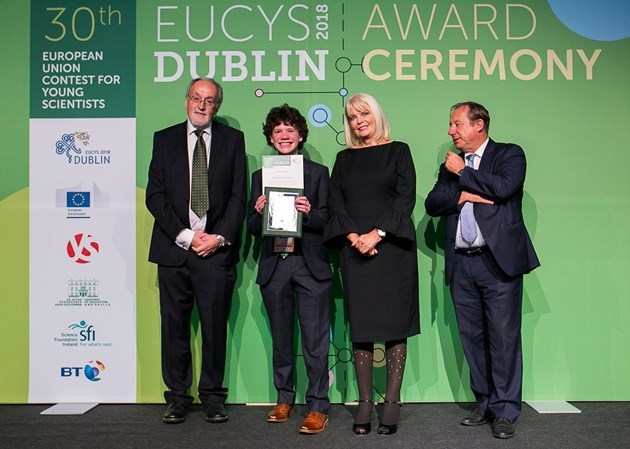Sudbury's Brendon Matusch will once again take his scientific mind to the international stage to compete against 1,800 of the world's best young scientists.
Matusch's project is called “Improving Particle Classification in WIMP Dark Matter Detection Experiments Using Neural Networks.” It's very technical, but he spent last summer underground at SNOLAB using machine learning to build an algorithm to classify background radiation that would allow him to potentially isolate dark matter events, if they actually exist.
The Lo-Ellen Park Secondary School student is one of eight young Canadian scientists heading to Phoenix, Arizona, to compete in the 2019 Intel International Science and Engineering Fair (Intel ISEF) from May 12-18. High school students from more than 80 countries will be vying for the top award of US$75,000.
Matusch said he's not making any bets on how he will do there, though.
“I really have no idea, but I'm really excited to meet all the other students from around the world,” Matusch said. “It's going to be a really fun week no matter what happens.”
Matusch isn't a newcomer to international competition. He secured one of the three top prizes at the European Union Contest for Young Scientists, held in Dublin, Ireland, in September, 2018. It was his project, “Development of an Autonomous Vehicle Using Machine Learning” that captured the attention of judges then.
And, while his dark matter project may seem very different, it still uses machine learning at its foundation.
“(Machine learning is) a lot of fun,” he said. “I really enjoy it, because it has so many applications. It was exciting to get to work in a field (dark matter) that a lot of people have heard of, but not many people understand.”
Matusch was invited to SNOLAB by its director, Dr. Nigel Smith, after winning the Canada-Wide Science Fair last year.
“He invited me to SNOLAB for the summer to investigate machine learning,” Matusch said. “It was a great experience. It was cool to see all the fascinating things they are working on, and everyone was really energetic and excited about what they are doing.”
Reni Barlow is the executive director of Youth Science Canada, which was responsible for selecting the eight young scientists to make up Team Canada-ISEF. About 1,300 invitations were sent out to previous Canada-Wide Science Fair participants who are still in high school. Of that, about 75 applications were submitted. Following interviews, that number was whittled down to about 30. From there, the top eight were chosen.
“We have a very good science fair and stem project culture in Canada,” Barlow said. “When we take students like Brendon to international competitions, like the Intel ISEF, which is the world championship of science fairs, we do extremely well.
“It's difficult to know what the results will be, but we do know Brendon's project is extraordinary, and he is extraordinary. We wish him all the best of luck. I think he'll do very well, and his chances are much better than anyone else there, in our opinion.”
